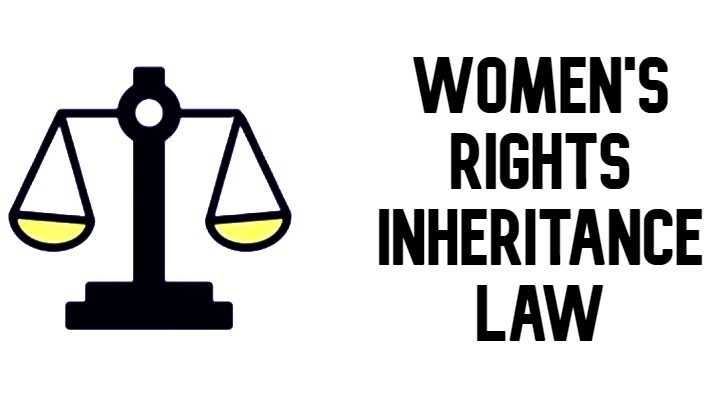Women's Rights Related to Inheritance Law in India! - healthforty
The unequal rights of women in personal law have always been a cause for concern. Because most personal law is old-fashioned and traditional. They are not yet updated according to the current situation.
In 2005 there was a significant amendment to the Hindu Succession Act. The law granted equal rights to daughters and sons with respect to inheritance.
Before 2005, sons & daughters also did not have the same rightss. At the time, only unmarried daughters could claim rights to their father's ancestral property; Features But after 2005, daughters have the same rights as sons. It means that, like a son, a daughter is entitled to her ancestral property, whether she is married or not.
If the father has his own or separate assets and dies without a will, the daughter will be considered a first class heir and will have the same rights as her mother, brother, sister or grandmother.
Inheritance is a testament paper:
A will is a legal document that allows the owner of property to bequeath or distribute ownership of the property. Probate is necessary to execute a will after the holder's death. At probate, a copy of the will is certified with the court to establish the validity of the document and the executor of the will is allowed to proceed with the administration of the will. The role of wills is stronger than probate law, although the heirs and beneficiaries of a will and other relatives can challenge it in a court of law.
Inheritance Law for Women in India: Maintenance:
For maintenance of the spouse, children and parents, article 125 of the Criminal Procedure Code establishes the following: If a person refuses to maintain the following despite being able to do so:
- A wife who can't take care of herself
- He does not take care of minor children, whether they are legitimate or not.
- Neither parent is capable of taking care of themselves.
- In such a situation, the Indian courts can require the payment of a monthly allowance for the support of dependents.
Inheritance laws in other countries: need to learn:
The language used in inheritance laws in Western and European countries such as the United States, Germany, and France is gender-neutral.
Whereas in India, terms like son, daughter, father, son and spouse are used. By using that language, it is implied that everyone has the right to inherit property regardless of gender. If this approach is taken in India, the country will have gender-neutral inheritance laws.
Final Statement on Inheritance Law in India:
Since inheritance laws in India depend on the trust being followed by the property holder, it is a good idea to be aware of the benefits listed in the law. If you are heir to a deceased person, make sure the property is not encumbered with any debt. Next, find the last will made by the owner of the property.
If there is a will, the executor must distribute the assets according to the wishes of the deceased. If there is no will, follow the rules under the estate law of his trust. Make sure you get a mutation of your part of the property to his name. If you are still confused about what probate law is and how it applies to you, contact an attorney or obtain legal services.
Rights of natural and adoptive children:
Under the Hindu Succession Act 1956, both sons and daughters have equal rights to share the property of the father with the mother and grandmother.
Even a posthumous child, if born alive, has the right to the father's property. In case of paternal property in HUF, the child, by birth, has the same right as the father in the property. After the death of the father, the right of the son passes to the property acquired by himself from the grandfather.
In the case of a legally adopted child, the child has the same rights as a natural child under the Indian Inheritance Act. From the moment of adoption, the child ceases to belong to the biological parents and becomes part of the new family.
But if property or a part of the property is vested in the child before the birth family's adoption, the property will remain with the child even after the adoption.







0 Comments
Leave a comment here